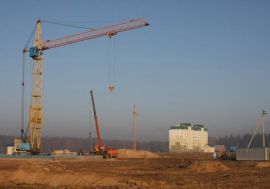- Home
- About
-
Staff
- Commentaries by FPS Staff
- Rusakovich Andrei Vladimirovich
- Rozanov Anatoliy Arkadievich
- Research Briefs
- Tihomirov Alexander Valentinovich
- Shadurski Victor Gennadievich
- Sidorchuk Valery Kirillovich
- Brovka Gennady Mikhailovich
- Gancherenok Igor Ivanovich
- Malevich Ulianna Igorevna
- Prannik Tatiana Alexandrovna
- Selivanov Andrey Vladimirovich
- Sharapo Alexander Victorovich
- Testimonials
-
Conference Proceedings
- Amber Coast Transport Initiative Project Concept
- Nato and Belarus - partnership, past tensions and future possibilities
- OSCE High-Level Seminar on Military Doctrine
- Poland-Belarus: perspectives of cross-border cooperation
- Polish-Belarussian Transborder Customs Cooperation: сurrent Problems and Challenges
-
Reports
- We see the significant reduction of the U.S. Army in Europe
- NATO's International Security Role
- International seminar on issues in the Collective Security Treaty Organization
- Belarus-Turkey: The ways of cooperation - 2011
- Belarus - Poland: two decades of international relations
- Belarus-Turkey: The ways of cooperation - 2009
- International seminar Belarusian Diaspora: Past and Present
- The first Round Table
-
News Releases
- The conference on Overcoming the financial crisis
- Round Table on history and future of Belarus-Poland cooperation
- Seminar on Belarusian diaspora: past and present
- The conference on Belarus in the Modern World
- The conference on Economic, legal and informational aspects of cooperation in customs sphere
- Comments
- Contact
Petras Vaida, BC, Vilnius, 20.03.2012.
On 20-21 March in Geneva, the Implementation Committee of the UN Convention on Environmental Impact Assessment in a Transboundary Context (Espoo Convention) is to begin a hearing into Lithuania's claim that Belarus failed to meet convention requirements while building a new nuclear power plant (NPP), Lithuanian MFA said.

Lithuania filed the complaint to
the Implementation Committee of the Espoo Convention in June 2011. Lithuania
claims that actions of Belarus fail to meet the requirements of this
convention, i.e., until now Minsk has not replied to Lithuania's questions,
public hearings and bilateral consultations have not been organised, and, in
the meantime, the project is being further developed. It should be noted that
already in January 2009, Belarus had started preparatory work for building the
nuclear power plant at the construction site in Astraviets, only 50 km away
from the capital of Lithuania. However, Belarus invited Lithuania to
participate in the environmental impact assessment process only in August 2009.
The Espoo Convention sets out that the construction of the object that has a
transboundary impact on other countries should begin only after the completion
of the environmental impact assessment, after answering questions raised by
impacted countries and after organizing public hearings.
According to the data of the
Lithuanian Ministry of Foreign Affairs, not only Lithuania, but also the
European Commission has objected to the actions of Belarus, and informed Minsk
in writing that the procedures for environmental impact assessment under the
Espoo Convention were not completed and that Belarus had to answer remaining
questions.





